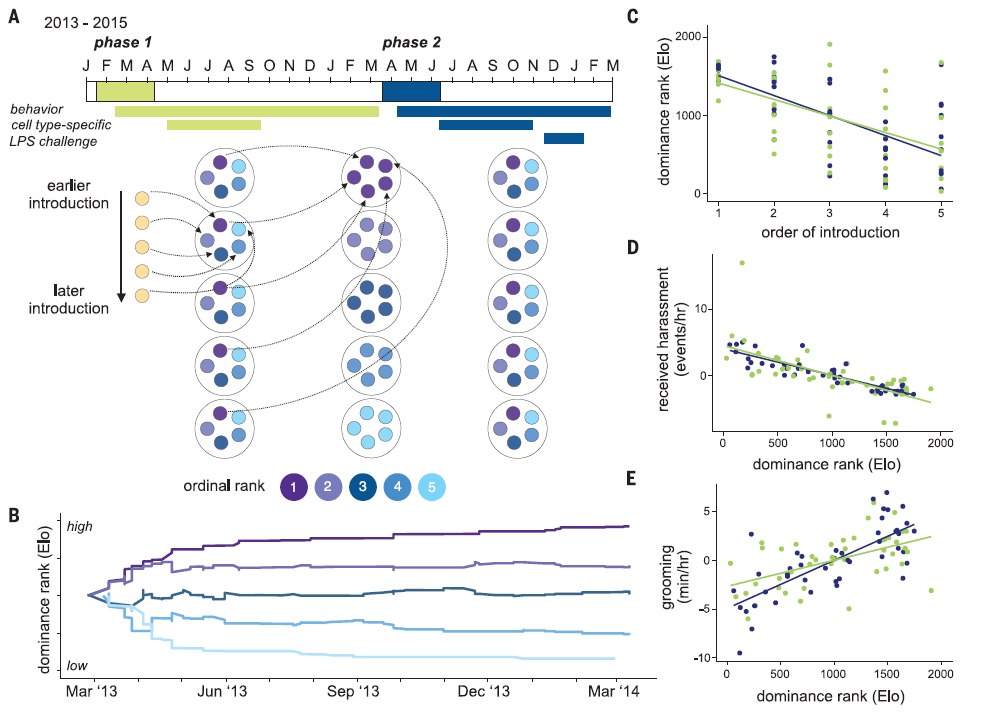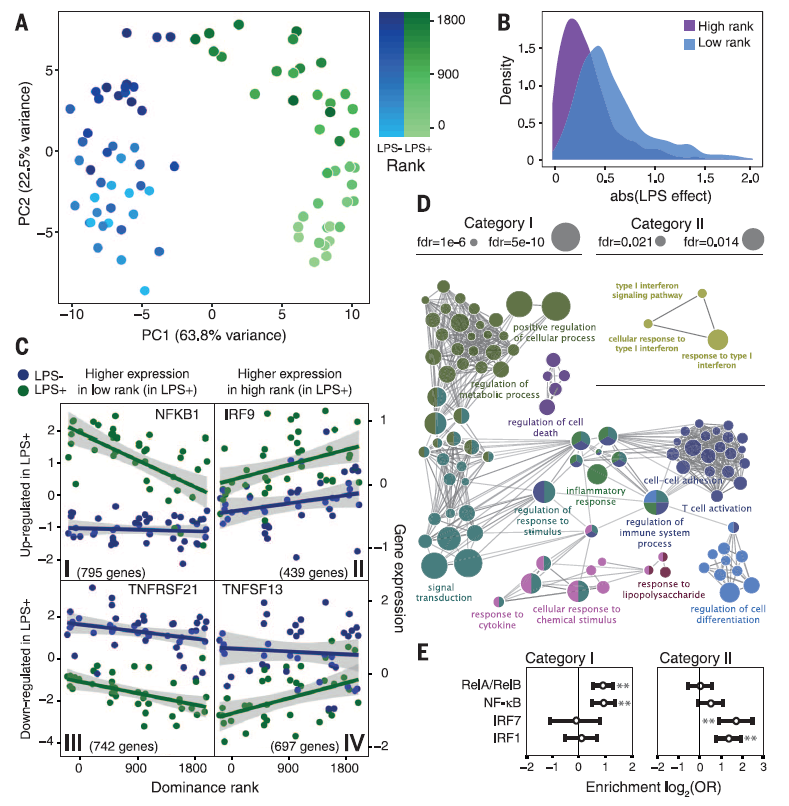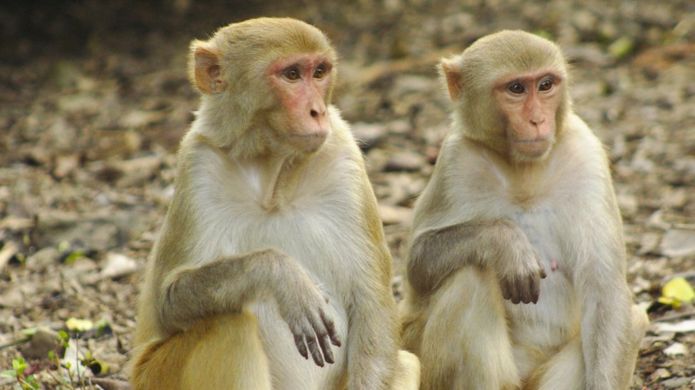Social status affects the immune system

Two rhesus macaques. Photo: Lauren Brent
Why do many social animals strive to increase their influence and power, to climb the social ladder above their relatives? The answer is clear: according to the theory of natural selection, such individuals have a higher chance of leaving qualitative offspring. But there are some interesting side effects. As a result of studying females of rhesus monkeys, the theory was confirmed that a low social status worsens the state of the immune system . One expert says that the results of this study are almost certainly applicable to humans, since this is how it works for other social primates. Subjective feeling is lower and poorer than friends / relatives is harmful to health.
The best health and the longest duration of the richest people compared to the poorest is a long-established fact. In the USA, the difference exceeds 10 years for women and 15 years for men . Traditionally, this was objectively explained by the poor living conditions of the poor, bad habits: smoking tobacco and alcohol, an unhealthy diet of “junk” food and lack of sports training, worse medical care, etc.
But now it can be assumed that the subjective factors, their own perception of the surrounding reality, also have an impact on the health of the poor. The same poor man with the same habits and other equal factors would be healthier and have lived longer if the people around him were lower than him on the social scale. Such conclusions follow from scientific work."Social status alters immune regulation and response to infection in macaques" , if we apply these findings to people.
Previous studies of hierarchically organized groups of primates revealed a correlation between the social status of primates and changes in the cardiovascular system, the function of the hypothalamic-pituitary-adrenal system, the growth of inflammatory processes. According to scientists, this clearly shows the reaction of the immune system to a change in social status in humans and other social primates.
A group of researchers from the United States and Canada conducted a study on 45 female rhesus monkeys to test the theory of the influence of social status on the state of the immune system. To do this, they organized a group of primates studied, in which the social status of individuals in a special way changed over the course of two years. The first phase in the graph refers to the study during the group formation period between January 2013 and March 2014. The second phase refers to the period between March 2014 and March 2015.
The diagram shows the formation of the group during the first phase. The social hierarchy of individuals is marked with a position from 1 to 5. After the formation of the hierarchy in each group, scientists selected individuals of the same rank — and formed new groups of them (phase 2). Accordingly, primates had to build a new hierarchy. Of every five high-ranking individuals, four have lowered their social status, including one that has the lowest position in the group. And vice versa - out of five low-ranking individuals, four raised their social status, including one that was ranked the highest in the group.

Graph B shows an example of how the social hierarchy is established for the five new members of the female group. It can be seen that the social status of the female is established within a few months and remains stable for the entire subsequent period. Graph C shows how the order of the appearance of a new member of a group negatively affects its social status (the later the member appears in the group - the lower will be his status). On the graph D - the frequency of harassment depending on social status. On the graph E - the same dependence of the frequency of grooming (minutes per hour) on social status.
The study showed that a decrease in social status directly leads to a deterioration of the immune system, namely, to a weaker response to stimulation with lipopolysaccharide (LPS).

Changes in the immune response to lipopolysaccharide stimulation in rhesus monkeys with different social position in the group
In the blood samples of monkeys of different social status, 1600 differences were found corresponding to different expression of the genes responsible for the immune system. In low-ranking primates, the immune system works more aggressively, which causes inflammatory processes and adversely affects other body systems.
It is likely that this is due to a decrease in the pleasure of grooming and an increase in stress from sexual harassment of relatives. It is the very fact of low status that suppresses (that is, the very idea of our own powerlessness). Thus, low-ranking primates live in a state of chronic stress, and the harm of health stress is well known.
However, not everything is so simple. Other studies indicate that the maximum level of parasites on the body is not observed in low-ranking primates, but in primates with a higher status . It can be assumed that the highest stress and the strongest disorders in the immune system are characteristic of primates with the highest and lowest status, and the most healthy level of social status in society is somewhere between them.

Photo: Lauren Brent
Scientists believe that it is impossible to get rid of the social hierarchy in human society, but you can at least reduce the stratification in society. Perhaps a decrease in wealth among the richest people can improve the health of people with low status.
Scientific work publishedNovember 25, 2016 in the journal Science (doi: 10.1126 / science.aah3580).
Only registered users can participate in the survey. Sign in , please.
